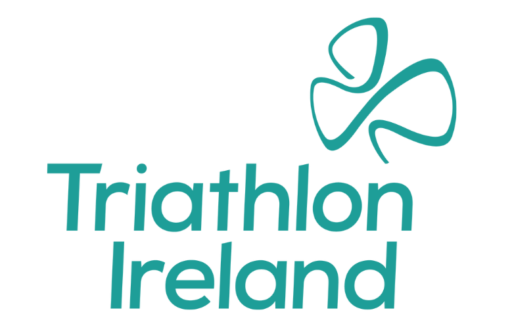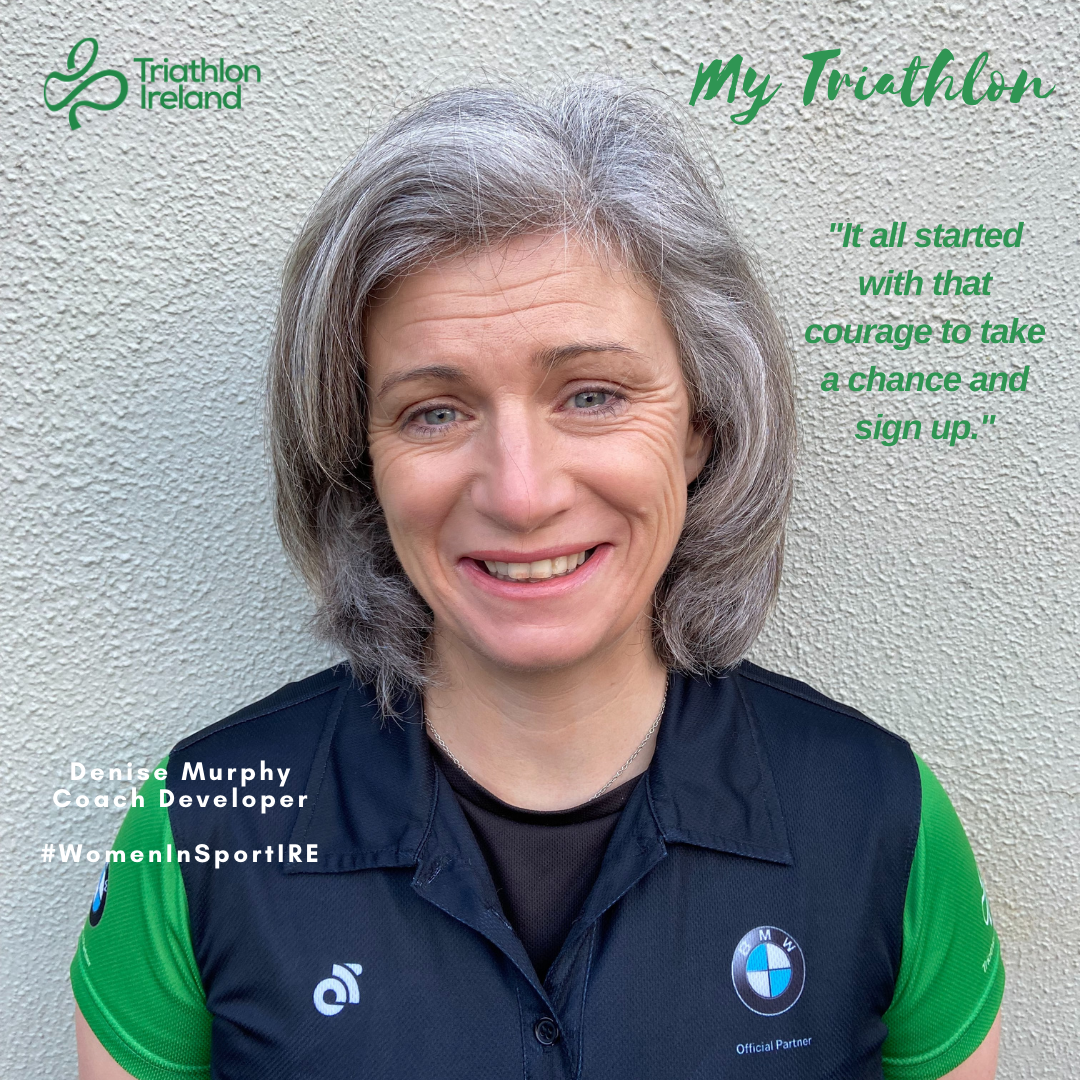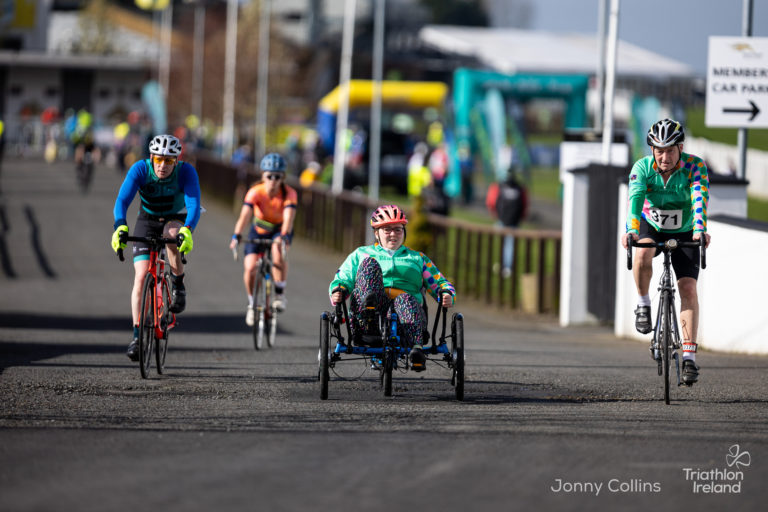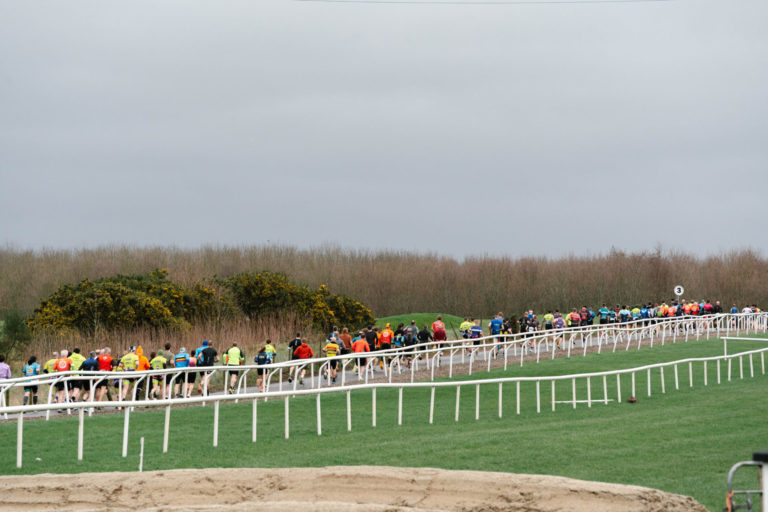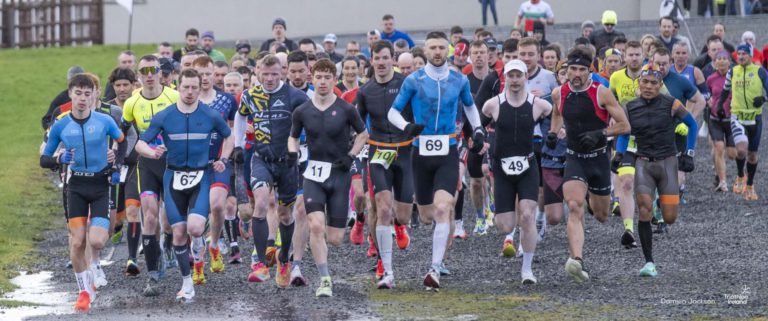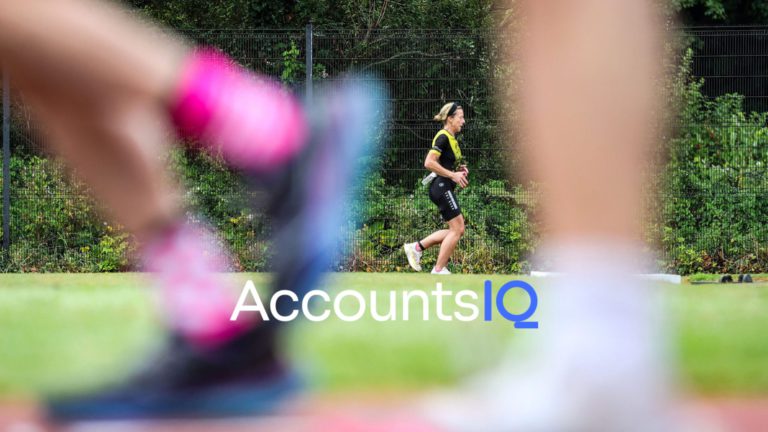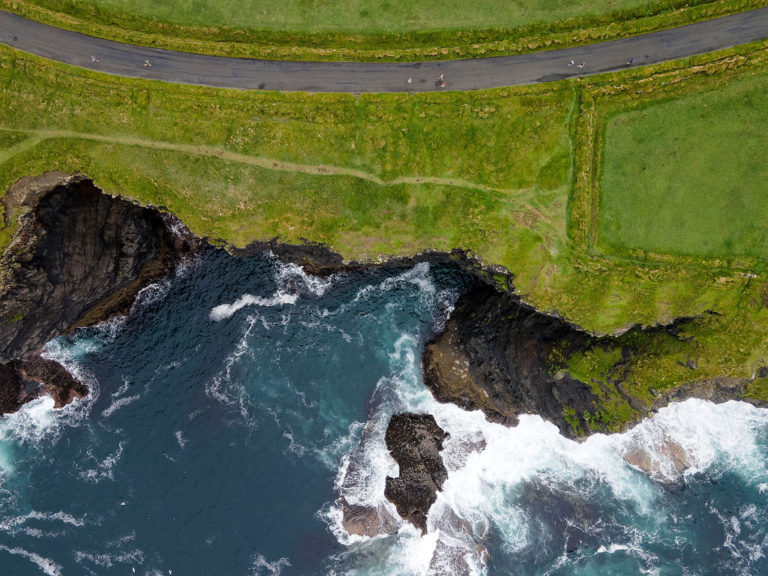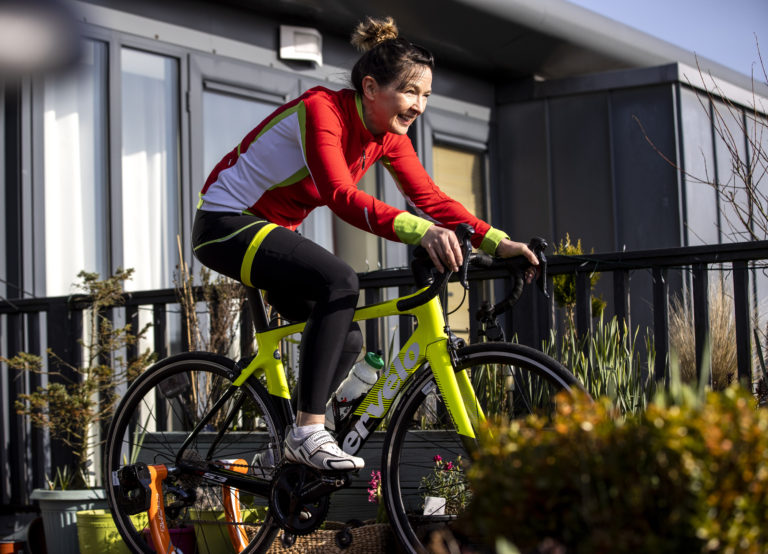My Triathlon: Denise Murphy
To celebrate Women in Sport Week, each day we are sharing the experiences of some of the leaders in our community. This week you’ll get to meet club chairs, committee members, coaches, board members and technical officials, and find out more about their journey in triathlon.
Today, meet Denise Murphy. Denise is an experienced Coach Developer who has been instrumental to the development of Triathlon Ireland’s coaching courses in the past number of years. Read on to find out more about Denise’s journey in the sport so far…
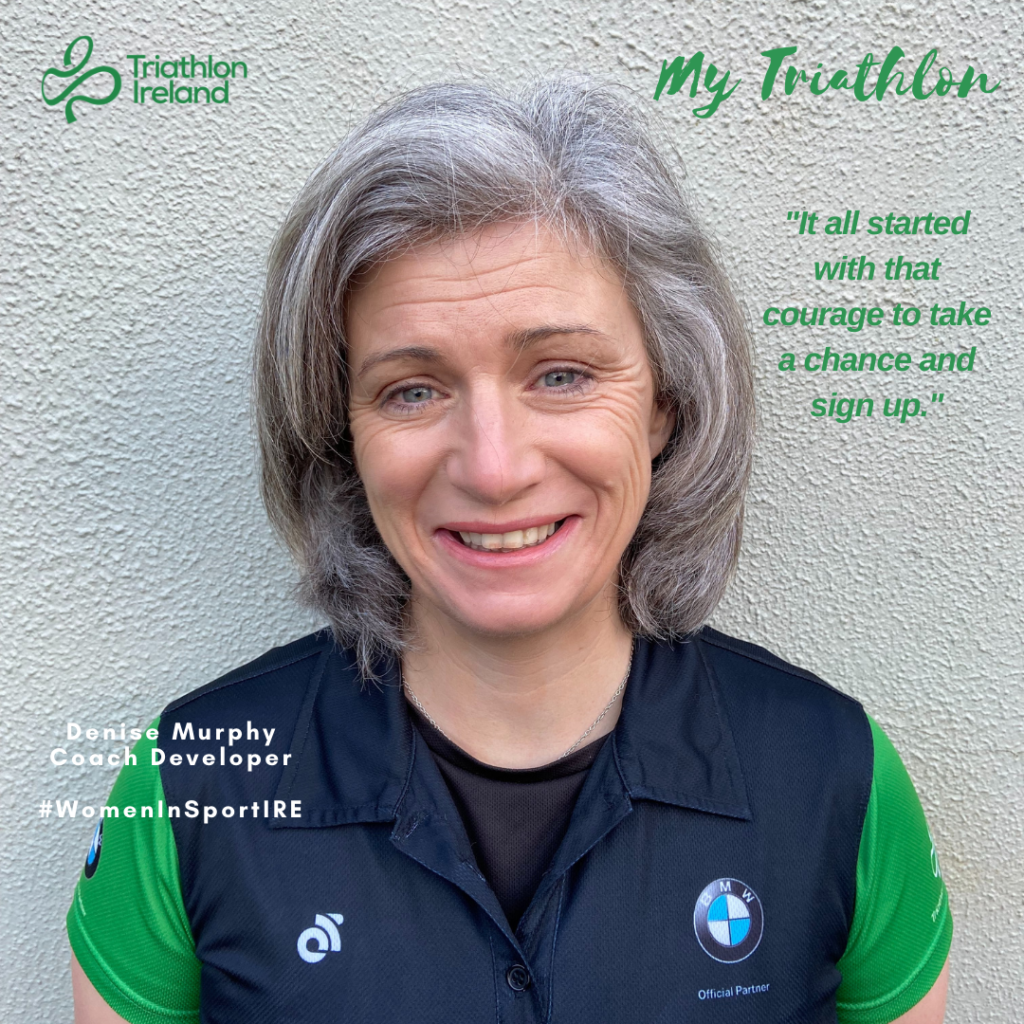
I had taken part in sport most of my life and to complete a triathlon was on my bucket list. As I’ve learned like a lot of triathletes, the open water swim was my fear factor that held me back. As it happened I was in the Phoenix Park many years ago while the Dublin City Triathlon was taking place. It was at a time you could enter on the day and there were probably less than 100 athletes entered. I knew there and then that my next challenge was going to be participating in a triathlon. Shortly after that, Kildare County Council advertised a pool based triathlon and I entered it. The rest is history. After my first race I was addicted. And all these years later I’m still as passionate and get as much of a buzz off of my involvement in triathlon.
How long have you been coaching? How did you start out in coaching?
I’ve been involved in triathlon coaching for about 11 years. Previous to that I had some experience coaching underage soccer. I, along with a few of my Trilogy club friends, signed up for the first pilot Level 1 triathlon coaching course being run by Triathlon Ireland. I started coaching in my club shortly after that and then with some encouragement from Eamon Tilley who was involved in coach education at the time I proceeded on to complete the Level 2 and Coach Developer courses.
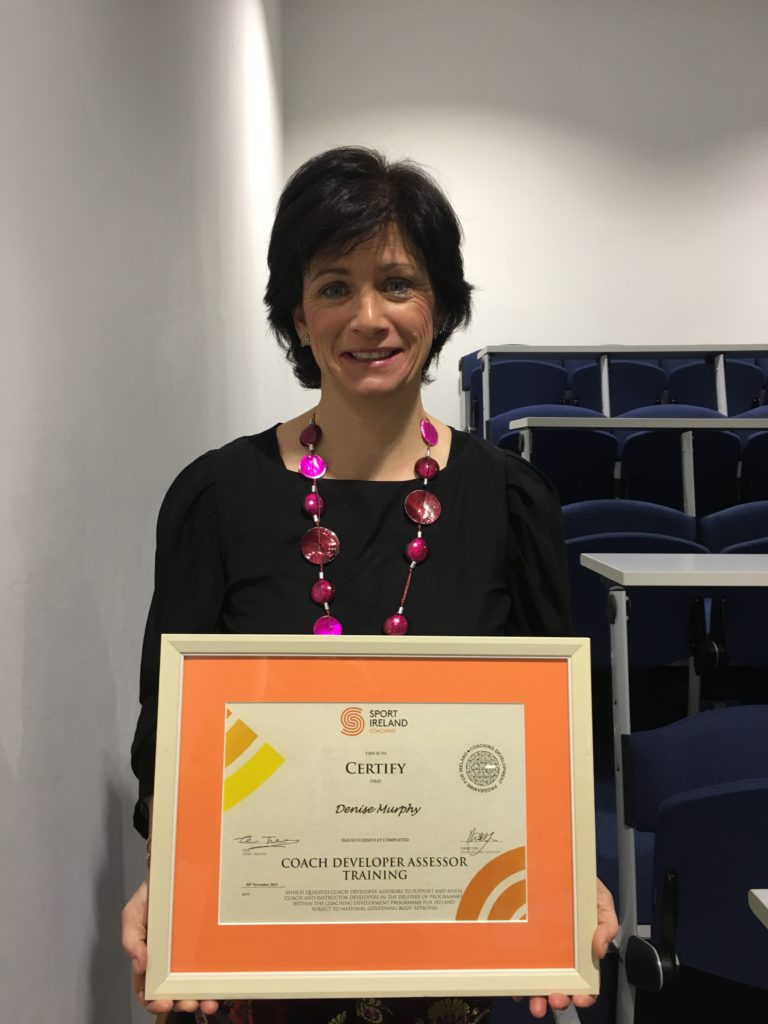
You have been instrumental in the development of the new Tri Leader course, the first step on the coaching ladder. What advice would you give to those starting their coaching certification?
My advice: take the first step and sign up for the leader course. So many people come onto the course saying they want to know more, they just want to help out a little and they are not sure they could coach. By the time they go home they realise; they know much more than they think, they are ready to go back and get more involved in their club and/or they have found that they enjoyed their coaching experience so much they are contemplating progressing to the next level.
The Tri Leader course is an introductory course to everything that’s involved in becoming a leader or taking the first step in progressing on the coaching pathway.
We have restructured the Tri Leader in a way that allows those interested to understand the different roles and responsibilities of the various coaching levels and most importantly a chance for them to engage personally in good coaching practices under the guidance of TI Coach Developers. The course is also accredited by Sport Ireland Coaching. The basics were already there, I just helped redevelop it to make it more interactive and practical for interested participants.
I would advise anyone interested in getting involved in finding out more about coaching, helping out or involved in supporting their clubs coaching structures to attend this course. It will offer them so much. It provides them with the appropriate knowledge and skills to allow them to build; a safe environment, a coaching philosophy and gain experience, all under the guidance and support of qualified Coach Developers. Should they then decide to proceed to a Level 1 or 2 coaching certification, the course structure is designed to fit into the overall coaching pathways to Level 1 and 2, which are accredited by Sport Coaching Ireland and World Triathlon. It also allows Leaders to undertake CPD’s (Continuous Professional Development) courses which will also help them to grow their knowledge.
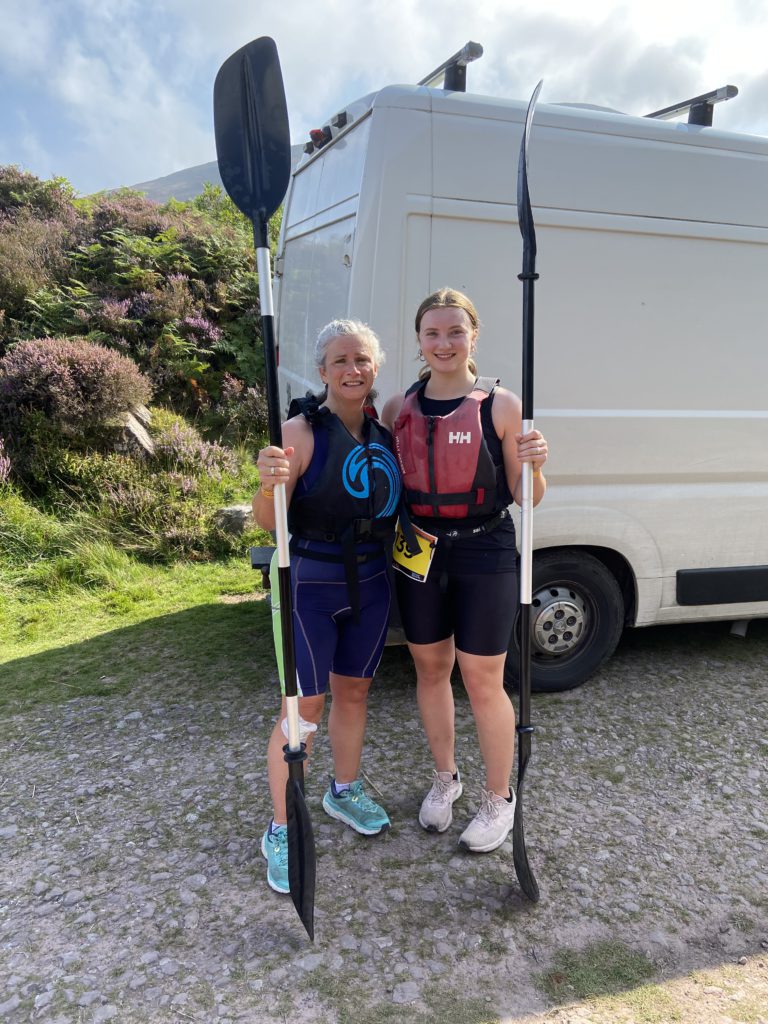
Describe the attributes that are important to being a good coach.
I think to be a good coach you need a really large “toolkit” of skills, and the ability to know which tool best suits a given athlete or situation. It is so important to be able to connect with and relate to the individual or group you are working with. It’s about building a mutual bond of trust, respect and caring for each individual athlete. If the coach is authentic, then how they communicate and interact with athletes will set the tone of the learning environment. They need to bring a positive energy, be empathetic, a good listener, motivator, observer, fair and reasonable.
A coach needs to be suitably qualified and professional in their role, with an eagerness to stay up to date with the latest research in all aspects of the sport. And finally, I think they need to be passionate about what they are delivering and whom they are delivering to. It’s a challenging role at times but so rewarding.
You’re currently taking part in the Women’s Leadership Programme with women from a number of different sports. Tell us about your experience on the programme so far. How do you feel being part of this programme is beneficial?
Yes I was invited to be part of the Women’s Leadership Programme. It has been an amazing experience to date. On the course, are a group of women involved in a variety of sporting environments, all coming together to learn and share experiences and knowledge under the guidance of two inspiring mentors, Lisa Clancy and Sarah O’Shea. The course has opened my eyes to the importance of women in leadership and the value they bring to their respective roles. Over the course of the few weeks we have heard from a variety of inspiring female and male leaders in sport who gave their time to share their personal journeys and give advice to help us on our leadership paths. I feel very privileged to be part of such a positive network.
If you had to choose one discipline; swim, bike or run, which would you choose and why?
Oh this is a tough one, my answer; it depends on what day you ask me!
I have a love-hate relationship with swimming. Even now I still get nervous before the swim. But I have swam in some amazing races and venues in Ireland and Europe since I started taking part in triathlons, this far outweighs the fear.
I think the olympic distance is my favourite bike distance. I love when I can really get into a good rhythm on the bike over this distance and have time to enjoy it.
And I suppose the run is the final hurdle, knowing the finish line is getting closer and trying to find the energy or fitness to give it all I’ve got. But I think the sport of mixing the 3 disciplines is what I really like. For me, it’s chasing the dream of the “perfect race” when I perform really well in all 3 disciplines, although a lot of the time it’s a mix of good and not so good. But it’s always enjoyable.
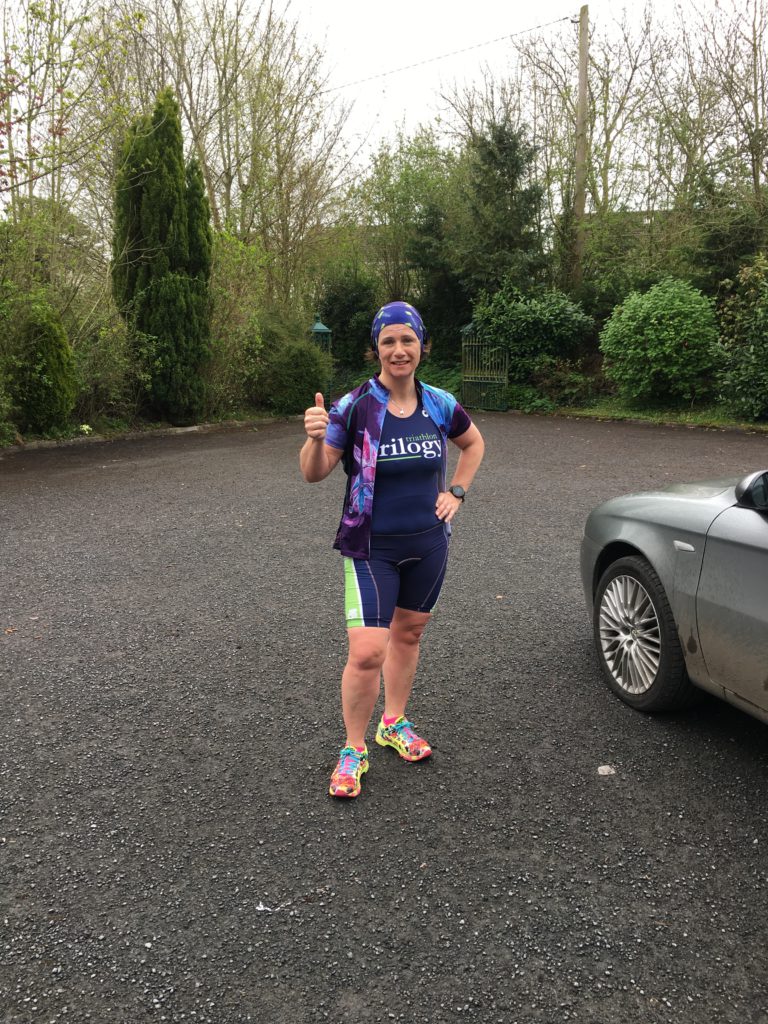
What ways have you seen triathlon coaching develop in the last number of years?
Since my involvement in triathlon coaching it has grown from strength to strength.
Coach education and its availability within our sport has been paramount to the improvement in triathlon coaching from juniors to age groupers and to clubs. Coaches have access to scientifically based courses while also having the practical application included in this training. Accredited coaching qualifications have made a significant improvement to the professional nature of the role and career prospects for coaches if they so choose. Our coach education programme within Triathlon Ireland has evolved to meet these standards and to encourage the ongoing need for highly trained coaches and leaders. Almost all our clubs have a coaching structure and a long term development plan to bring their coaching to a higher standard within their clubs.
I think coaching itself has changed to be a more holistic and athlete focused role. The coach works the training plan around the needs, capabilities and goals of the athlete.
With coaching qualifications now giving coaches knowledge in sport science and underpinning this with the skills necessary to communicate effectively and appropriately with the athletes, it allows the coaches to select the best sessions and programmes suited to the needs and abilities of their athletes.
While the basic content of what we deliver has changed a little as a result of improved research in the area of triathlon, how we deliver it has changed a lot. We provide more practically engaging courses, we provide a qualification framework that works in partnership with Sport Ireland Coaching and World Triathlon which allows coaches attain professional coaching certificates. And I think we are producing a network of highly capable coaches through clubs in the country.
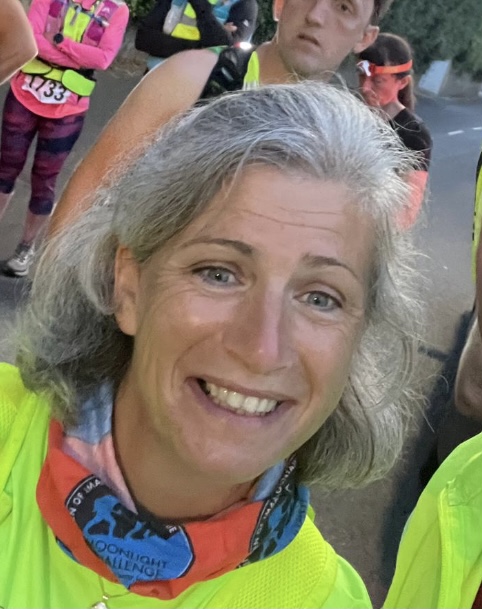
What is your favourite thing about being involved in coaching, and educating coaches?
I have a few favourites. I enjoy seeing people going home at the end of a coaching course feeling enthusiastic and excited to go back and get more involved in their club.
I enjoy seeing the personal development in coaches over a few days on our Level 1 or 2 courses. Their confidence, personal growth and sense of achievement shine through.
I’ve been a Coach Developer for Triathlon Ireland for over 7 years now and I have seen a lot of people pass through our courses. But I feel very proud of our coach education programme and how it has evolved. When I see people who started out on leader courses, not knowing if coaching was for them, to meet them again on Level 1 and Level 2 courses, and in a few instances, now working with them as Coach Developers delivering courses.
When I look back on my own personal coaching journey, I never would have thought that in a few short years I would go from being that athlete curious to know more, to now being a Coach Developer who is involved in developing, designing and delivering courses to like minded leaders and coaches. And it all started with that courage to take a chance and sign up.
